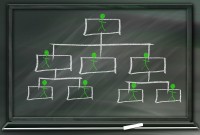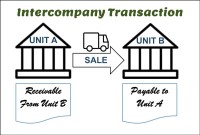- Home
- Business Processes
- Industry Knowledge
- Aerospace Industry
- Automotive Industry
- Banking Domain
- BFSI Industry
- Consumer/ FMCG Industry
- Chemicals Industry
- Engineering & Construction
- Energy Industry
- Education Domain
- Finance Domain
- Hospitality Domain
- Healthcare Industry
- Insurance Domain
- Retail Industry
- Travel and Tourism Domain
- Telecom Industry
- Leadership Skills
- eLearning
- Home
- Functional
- General Ledger (Record to Report)
- Concept of Representative Office
Concept of Representative Office
A representative office is the easiest option for a company planning to start its operations in a foreign country. The company need not incorporate a separate legal entity nor trigger corporate income tax, as long as the activities are limited in nature.
A representative office is the easiest option for a company planning to start its operations in a foreign country. The company need not incorporate a separate legal entity nor trigger corporate income tax, as long as the activities are limited in nature. As its name says, a representative office represents its foreign parent in the country of operations.
A representative office is an office established by a company to conduct marketing and other non-transactional operations, generally in a foreign country where a branch office or subsidiary is not warranted. A representative office cannot regularly buy and sell goods or offer services. Representative offices are generally easier to establish than a branch or subsidiary, as they are not used for actual "business" (e.g. sales) and therefore there is less incentive for them to be regulated.
A representative office is a more tentative step into the foreign market, often used by investors to test the waters or for promotional purposes when the business distributes its goods by other means. A representative office is most appropriate in the early stages of corporation’s business presence in a foreign country. They have been used extensively by foreign investors in emerging markets such as China, India and Vietnam although they do have restrictions through not being able to invoice locally for goods or services.
Main Features:
- Representative office to engage only in activities which do not amount to, or form part of, the carrying on of the relevant business in foreign country.
- Having a nominated person employed by a local affiliate to handle enquiries could fall into this category.
- The representative office can contact customers and enter into contracts on behalf of its foreign parent, but can’t sell the goods itself.
- Representative Offices tend to be utilized by foreign investors in fields such as sourcing of products, quality control, and general liaison activities between the Head Office and the Representative Offices overseas.
- Corporations should periodically review the suitability of the structure and its activities to make sure that the company is not triggering a taxable presence in the foreign land by exceeding the permissible activities.
ICICI Bank, India's second largest bank, opened representatives offices in three east-Asian countries Thailand, Indonesia and Malaysia". The branches are expected to enable the bank to increase its participation in India's trade transactions in the region. It also has a representative office in the US.
Related Links
You May Also Like
-
Reversing Journals are special journals that are automatically reversed after a specified date. A reversing entry is a journal entry to “undo” an adjusting entry. When you create a reversing journal entry it nullifies the accounting impact of the original entry. Reversing entries make it easier to record subsequent transactions by eliminating the need for certain compound entries. See an example of reversing journal entry!
-
Shared Services is the centralization of service offering at one part of an organization or group sharing funding and resourcing. The providing department effectively becomes an internal service provider. The key is the idea of 'sharing' within an organization or group.
-
Explore the concept of journal reversals and understand the business scenarios in which users may need to reverse the accounting entries that have been already entered into the system. Understand the common sources of errors resulting in the reversal of entries and learn how to correct them. Discuss the reversal of adjustment entries and the reversal functionalities in ERPs.
-
GL - Recurring Journal Entries
A “Recurring Journal” is a journal that needs to be repeated and processed periodically. Recurring Entries are business transactions that are repeated regularly, such as fixed rent or insurance to be paid every month. Learn the various methods that can be used to generate recurring journals. See some examples and explore the generic process to create recurring journals in any automated system.
-
Hierarchical Organization Structures
Hierarchical structure is typical for larger businesses and organizations. It relies on having different levels of authority with a chain of command connecting multiple management levels within the organization. The decision-making process is typically formal and flows from the top down.
-
What is Accounting & Book Keeping
Accounting is a process designed to capture the economic impact of everyday transactions. Each day, many events and activities occur in an entity, these events and activities are in the normal course of business; however, each of these events may or may not have an economic impact. Events or activities that have an effect on the accounting equation are accounting events.
-
Defining Organizational Hierarchies
A hierarchy is an ordered series of related objects. You can relate hierarchy with “pyramid” - where each step of the pyramid is subordinate to the one above it. One can use drill up or down to perform multi-dimensional analysis with a hierarchy. Multi-dimensional analysis uses dimension objects organized in a meaningful order and allows users to observe data from various viewpoints.
-
Although technically a general ledger appears to be fairly simple compared to other processes, in large organizations, the general ledger has to provide many functionalities and it becomes considerably large and complex. Modern business organizations are complex, run multiple products and service lines, leveraging a large number of registered legal entities, and have varied reporting needs.
-
After reading this article the learner should be able to understand the meaning of intercompany and different types of intercompany transactions that can occur. Understand why intercompany transactions are addressed when preparing consolidated financial statements, differentiate between upstream and downstream intercompany transactions, and understand the concept of intercompany reconciliations.
-
Period End Accruals, Receipt Accruals, Paid Time-Off Accruals, AP Accruals, Revenue Based Cost Accruals, Perpetual Accruals, Inventory Accruals, Accruals Write Off, PO Receipt Accrual, Cost Accrual, etc. are some of the most complex and generally misconstrued terms in the context of general ledger accounting. In this article, we will explore what is the concept of accrual and how it impacts general ledger accounting.
Explore Our Free Training Articles or
Sign Up to Start With Our eLearning Courses

About Us
Learning
© 2023 TechnoFunc, All Rights Reserved











